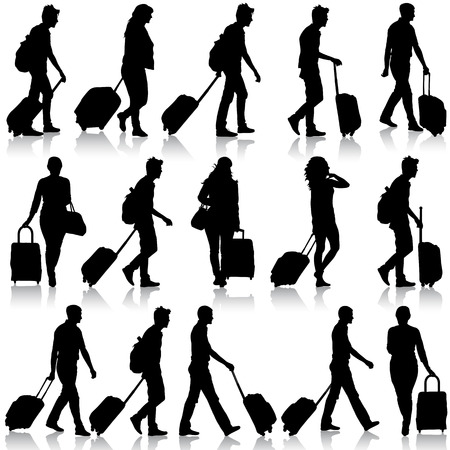Most people know that if they exercise and eat right they will have a healthier lifestyle. However, sometimes our jobs, family and other commitments prohibit us from working out or cooking healthful meals. If you add the burden of frequent business travelling, the odds of poorer health further increase.
The Journal of Occupational and Environmental Medicine recently published a study showing that employees who traveled the greatest number of hours had the highest obesity rate. Additionally, on self-reported questionnaires, these travelers were more likely to report a level of health in the poor to fair range.
 Obesity is defined as a condition where a person has an excess amount of body fat. This may adversely affect health and life expectancy. A BMI (body mass index) of 30 or higher is considered obese. BMI is calculated by dividing a person’s weight in kilograms by the square of a person’s height in meters. Obesity is a significant risk factor for many diseases. This includes diabetes, heart disease, stroke, arthritis, sleep apnea and some cancers.
Obesity is defined as a condition where a person has an excess amount of body fat. This may adversely affect health and life expectancy. A BMI (body mass index) of 30 or higher is considered obese. BMI is calculated by dividing a person’s weight in kilograms by the square of a person’s height in meters. Obesity is a significant risk factor for many diseases. This includes diabetes, heart disease, stroke, arthritis, sleep apnea and some cancers.
Many factors contribute to obesity, including genetics, gender, illness, psychologicalfactors, medication, age, eating behaviors and physical activity. When people travel, their away-from-home environment has the potential to be unhealthy. First, it is very difficult to eat healthy when all your meals are in restaurants or on the run. Second, many hotels do not have fitness facilities or adequate equipment to exercise properly. Plus, employees may not have the time to exercise while away because of demanding schedules. Third, sleep may be affected by the quality and comfort of the mattress and pillows in the hotel room. Lastly, stress levels may be elevated due to the stress of traveling in addition to the business pressures.
It is important for business travelers to be very disciplined in order to ensure they eat right and have an exercise routine. They must carve out time during their trips. It needs to be a priority. They should also always pack exercise attire in their suitcases. In order to eat right, travelers should pack healthy snacks and a sandwich for their flight and buy healthy foods to keep in the hotel room. When dining out, alcohol and desserts should be limited. Portion sizes should be limited and fried and fatty foods should be avoided. Whether for yourself or your personal training clients, this advice should be taken seriously.
Denise Groothuis MS, RD and CPT has a BS from Cornell University and an MS in Applied Physiology and Nutrition from Columbia University. She is certified by the National Federation of Professional Trainers (NFPT) and licensed by the Commission on Dietetic Registration through the Academy of Nutrition of Dietetics. She is a personal trainer and RD with her own nutritional practice, Worth Your Weight Nutrition Experts.

